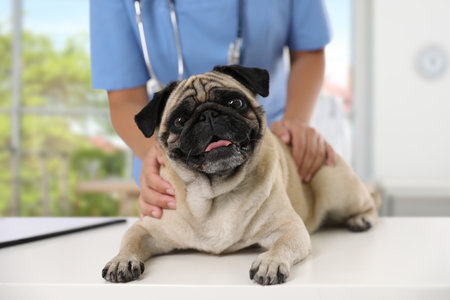Understanding Emergency Vet Clinics
When your beloved pet faces a sudden health crisis, knowing where to turn can make all the difference. Emergency vet clinics are specialized medical facilities that cater exclusively to urgent and life-threatening situations for animals. Unlike regular veterinary offices that handle routine checkups, vaccinations, and preventive care, emergency vet clinics are equipped to respond quickly to severe injuries, poisoning, difficulty breathing, or other acute conditions. Most emergency clinics operate outside standard office hours—many are open evenings, weekends, and even 24/7—ensuring help is available when traditional vet offices are closed. These clinics typically have advanced diagnostic tools and surgical capabilities on-site, allowing them to provide immediate interventions that can save lives. Understanding the unique role of emergency vet clinics helps pet owners make informed decisions during stressful moments and ensures their pets receive the right care at the right time.
2. What Regular Vet Offices Offer
Regular veterinary offices, also known as general practice vet clinics, are the first stop for most pet owners when it comes to maintaining their pet’s overall health. These clinics focus on preventive care and long-term wellness for pets, offering a wide range of services designed to keep animals healthy throughout every stage of life. Their approach is centered on building ongoing relationships with both pets and their families, allowing for personalized care plans tailored to each individual animal’s needs.
Core Services Provided by Regular Vet Offices
| Service Type | Description |
|---|---|
| Wellness Exams | Comprehensive check-ups that assess your pet’s overall health, including weight, dental status, heart function, and more. |
| Vaccinations | Routine immunizations to protect against common diseases like rabies, distemper, parvovirus, and feline leukemia. |
| Parasite Prevention | Screening and treatment for fleas, ticks, heartworms, and intestinal parasites to keep your pet safe year-round. |
| Spaying & Neutering | Surgical procedures to help control pet populations and reduce certain health risks. |
| Dental Care | Teeth cleaning, oral exams, and advice on at-home dental hygiene for pets. |
| Microchipping & Identification | Implanting microchips for permanent identification in case your pet gets lost. |
| Nutritional Counseling | Guidance on balanced diets and weight management tailored to your pet’s specific needs. |
| Routine Surgeries & Minor Procedures | Treatments such as mass removals or wound care that don’t require emergency attention. |
| Chronic Disease Management | Ongoing monitoring and treatment plans for conditions like diabetes or arthritis. |
| Puppy & Kitten Care Packages | Special programs including vaccinations, deworming, and early development checks for young pets. |
The Value of Ongoing Veterinary Relationships
One of the biggest advantages of regular vet offices is the continuity of care they provide. By seeing the same veterinarian consistently, your pet benefits from a medical professional who knows their unique history and can spot subtle changes in behavior or health over time. This relationship not only makes routine visits less stressful but also allows for early detection of potential issues before they become serious problems. Overall, general practice veterinary clinics are essential partners in preventive health care—offering guidance, education, and support every step of the way as you care for your furry family members.
![]()
3. When to Choose an Emergency Vet Clinic
Knowing when to take your pet to an emergency vet clinic instead of a regular vet office can make all the difference in a critical situation. Here’s what every pet parent should keep in mind:
Common Pet Emergencies
- Severe bleeding that doesn’t stop within five minutes
- Difficulty breathing, choking, or persistent coughing
- Unconsciousness, collapse, or sudden inability to stand
- Major trauma such as being hit by a car or falling from a height
- Seizures or severe disorientation
- Persistent vomiting or diarrhea, especially if bloody
- Suspected poisoning or ingestion of toxic substances
- Extreme pain, whining, or restlessness
- Swollen abdomen and unproductive retching (possible bloat)
- Trouble urinating or defecating, especially if accompanied by distress
Signs That Need Urgent Attention
- Pale gums or signs of shock (weak pulse, rapid breathing)
- Sustained high fever or sudden drop in body temperature
- Broken bones or visible wounds with exposed tissue
- Heatstroke symptoms: excessive panting, drooling, lethargy, confusion
- Sudden onset of blindness, staggering, or loss of coordination
When Should You Go Straight to the Emergency Clinic?
If your pet is experiencing any life-threatening symptoms listed above—or if you’re unsure but feel something is seriously wrong—it’s always best to err on the side of caution and visit an emergency vet clinic right away. Emergency clinics are equipped with specialized staff and diagnostic tools to handle urgent cases 24/7. Remember, quick action can save your pet’s life and prevent further complications.
4. When a Regular Vet Office is the Right Choice
If your pet’s health concern isn’t life-threatening or urgent, choosing a regular vet office is often the most appropriate and cost-effective solution. Regular veterinary clinics are best equipped for routine care, preventive services, and ongoing management of chronic conditions. Understanding when to visit your primary veterinarian instead of an emergency clinic can save you time, money, and unnecessary stress for your pet.
Common Scenarios for Regular Vet Visits
Most pet health needs can be addressed by your local vet during their regular business hours. Here are some typical reasons you might schedule an appointment:
| Scenario | Description |
|---|---|
| Annual Wellness Exams | Routine check-ups to monitor overall health, update vaccines, and discuss any concerns. |
| Preventive Care | Vaccinations, parasite prevention, dental cleanings, and nutrition counseling. |
| Mild Illnesses | Non-urgent symptoms like minor coughing, sneezing, skin irritations, or mild digestive issues. |
| Chronic Disease Management | Ongoing care for diabetes, arthritis, allergies, or thyroid conditions under a vet’s guidance. |
| Behavioral Consultations | Advice on training, anxiety management, or addressing unwanted behaviors. |
| Post-Surgical Follow-Ups | Rechecks after surgeries or dental procedures to ensure proper healing. |
The Benefits of Building a Relationship with Your Regular Vet
Your primary veterinarian gets to know your pet’s medical history, personality, and lifestyle over time. This continuity of care leads to more personalized recommendations and early detection of potential health problems. Plus, regular offices are usually less expensive than emergency clinics and can help coordinate specialist referrals if needed.
When in Doubt—Call First
If you’re unsure whether your pet’s issue requires emergency care or can wait for a regular appointment, call your vet’s office for guidance. Many clinics offer nurse lines or phone triage to help you decide on the next steps. It’s always better to ask than to worry!
5. Cost and Insurance Considerations
When deciding between an emergency vet clinic and a regular vet office, cost is often a major factor for pet owners in the United States. Emergency vet clinics generally have higher fees compared to regular vet offices. This is due to their extended hours, on-call staff, specialized equipment, and the urgent nature of the services they provide. For example, an after-hours emergency visit can easily cost two to three times more than a routine appointment at your primary veterinarian’s office.
Most regular vet offices offer preventive care, vaccinations, wellness exams, and scheduled treatments at standard rates. In contrast, emergency clinics charge premium prices for immediate attention and life-saving interventions. Diagnostic tests, surgeries, or overnight stays at an emergency facility can significantly increase your out-of-pocket expenses.
Pet insurance can help offset some of these costs, but it’s important to understand what your policy covers. Many pet insurance plans in the US require you to pay upfront at either type of facility and then submit a claim for reimbursement. Some policies may cover both routine and emergency care, while others focus only on accidents and illnesses. It’s crucial to check if your plan includes coverage for emergency visits and if there are any restrictions or waiting periods.
Even with insurance, pet owners should be prepared for some out-of-pocket expenses—such as deductibles or co-pays—and know that not all procedures or conditions will be covered. Always keep your insurance information handy and ask both your regular vet and any emergency clinic about expected costs ahead of time when possible.
6. Making the Decision: Factors to Consider
When your pet faces a health issue, knowing whether to visit an emergency vet clinic or a regular vet office can make all the difference. To help you decide confidently and quickly, here’s a practical checklist of key factors to consider:
Time of Day
If your pet needs care outside normal business hours—such as late at night, on weekends, or during holidays—an emergency vet clinic is often your best option. Regular vet offices typically operate during standard daytime hours.
Severity of the Issue
Life-Threatening Emergencies
Signs like severe bleeding, difficulty breathing, seizures, or sudden collapse require immediate attention at an emergency clinic.
Non-Urgent Concerns
Mild symptoms such as itching, minor limping, or mild digestive upset can usually wait for a scheduled appointment with your regular veterinarian.
Your Pet’s Health History
If your pet has chronic conditions, allergies, or ongoing treatments managed by their regular vet, consider whether continuity of care is important in this situation. For acute emergencies, stabilization comes first—even if it means seeing a new team.
Availability and Location
Consider how close you are to both types of facilities. In true emergencies, getting to the nearest open clinic quickly matters most.
Cost Considerations
Emergency clinics may charge higher fees due to their specialized services and extended hours. If the situation isn’t urgent, waiting for your regular vet could be more cost-effective.
Quick Decision Checklist:
- Is it after-hours or a holiday?
- Are symptoms life-threatening or rapidly worsening?
- Does my pet have complex medical history that might benefit from seeing their usual vet?
- Which facility is closest and can see us soonest?
- Am I prepared for potentially higher emergency costs?
No matter which option you choose, acting quickly and calmly will help ensure your pet gets the best care possible. When in doubt, call ahead—both emergency clinics and regular vet offices can offer guidance based on your pet’s symptoms and needs.


